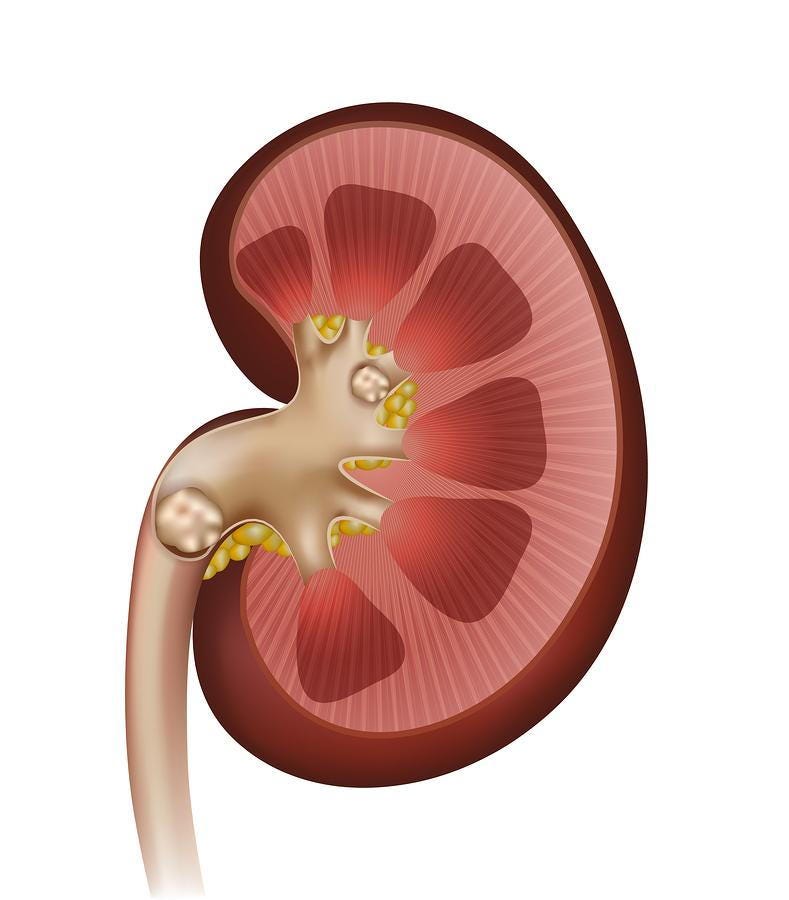Kidney stones are a common yet painful condition that can affect anyone at any age. Understanding how they form and recognizing their symptoms is crucial for early detection and effective treatment.

Formation of Kidney Stones:
Kidney stones, medically termed nephrolithiasis or renal calculi, develop when certain substances in the urine become highly concentrated and form crystals. These crystals can grow over time and eventually become large enough to form a solid stone. The most common types of kidney stones include:
- Calcium Stones: These are the most prevalent type and are typically made of calcium oxalate. They form when urine has high levels of calcium and oxalate.
- Uric Acid Stones: These form when urine is persistently acidic. Individuals with conditions like gout or those who consume a high-protein diet are more prone to uric acid stones.
- Struvite Stones: These stones can develop as a result of urinary tract infections (UTIs). They can grow quickly and become quite large.
- Cystine Stones: These are rare and occur in people with a hereditary disorder that causes the kidneys to excrete excessive amounts of certain amino acids.
Factors contributing to the formation of kidney stones include dehydration, certain medical conditions, genetic predisposition, and dietary factors (such as high intake of sodium or animal protein).
Symptoms of Kidney Stones:
The symptoms of kidney stones can vary depending on the size and location of the stone. Common signs and symptoms include:
- Intense Pain: The hallmark symptom of kidney stones is severe pain that typically starts suddenly and may come in waves. The pain often begins in the side or back, below the ribs, and can radiate to the lower abdomen and groin.
- Painful Urination: Individuals with kidney stones may experience pain or a burning sensation when urinating.
- Blood in Urine: Hematuria, or blood in the urine, can occur due to irritation of the urinary tract by the stone.
- Nausea and Vomiting: Some people with kidney stones may feel nauseous or vomit due to the pain.
- Frequent Urination: There may be an increased urge to urinate, and in some cases, urination may be painful or difficult.
- Urinary Tract Infections: Stones can predispose individuals to UTIs, which may cause symptoms such as fever and chills.
Conclusion:
Kidney stones are a painful condition caused by the formation of solid crystals in the urinary tract. Understanding the types of stones and recognizing the symptoms — such as severe pain, blood in urine, and nausea — is essential for seeking prompt medical attention. Treatment options range from pain management and hydration to surgical procedures, depending on the size and location of the stones. Early diagnosis and intervention can help prevent complications and alleviate discomfort associated with kidney stones.
Comments
Post a Comment